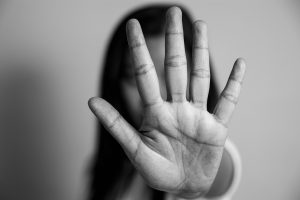Over the weekend tens of thousands of people took to the streets of Australia’s cities and towns to protest men’s violence against women. Australia has had an appalling start to the year – the Bondi shopping center stabbings are being investigated as specifically targeting women and there have already been a number of alleged domestic homicides.
The murder of women in Australia has accelerated this year, from one a week to one every four days.
Prime Minister Anthony Albanese attended the protest in Canberra over the weekend, and called for an emergency meeting this week with the state premiers to address the problem. This is a signal that governments understand that this is a crisis that requires immediate attention, although it’s less clear what initiatives would have an immediate impact.
In 2022, Australia released its decade-long National Plan to End Violence against Women and Children, which saw prevention as its primary objective through shifting social attitudes that drive violent behavior. While this is essential, as Jess Hill has written in The Guardian, the problem with the strategy of trying to shift social attitudes is that it “outsources its results to future generations.” It does nothing for the women who are living with the intimate terrorism of domestic violence today.
Designed to provide a roadmap for the National Plan, its follow-up five-year Action Plan saw advancing gender equality as its first component to ending men’s violence against women. This may seem like an obvious social path to enhance women’s safety, yet the reality is far more complex. Advancements in gender equality are not a stable linear progression. Progressive steps animate challengers.
We are currently in an era of extraordinary backlash to women’s advancement. Globally, there are many men who struggle to cope with social change and the idea of sharing social power. To them, gender equality seems like a threat; a set of social and often legal constraints placed upon their freedom of action, and in particular placed upon their pride and sense of dignity. Perversely, they feel victimized.
For these men, dominating women is at the core of what it means to be a man. Being told by advancing social sentiments, as well as by governments, that domineering and violent behaviors are intolerable when these men consider this a natural right – or part of their masculine essence – is only likely to further inflame their passions.
This presents domestic violence as a wicked problem, as these passions not only drive further violence against women, but also inspire public violence and radical political movements. If protecting broader public stability is the state’s primary concern, then advancing social and legal structures that weaken this stability is not in the state’s interests. This has traditionally been the bargain that states have struck – to try to confine male violence within the four walls of the household in order to prevent it from being on the street, or worse, directed at the state itself.
Alongside the threat to itself from organized male passion, this bargain was also built on the state seeing its own capabilities through the capabilities of its men. Men’s hands were what made national power, and if they were to get rough sometimes with women, then this was a cost the state was willing to bear in order to maintain productivity.
Yet this isn’t the world we now live in. Women’s education has accelerated past that of men at an astonishing pace, and their economic and political power is rising with it. The state can no longer afford to tolerate a social bargain that doesn’t take women’s safety seriously. It needs to start seeing its own capabilities through the capabilities of women, too. It has to see women’s security as national security.
Would this kind of shift inflame men’s passions? Most likely. But what other option does the Australian government have? For no other security problem would volume and complexity be deemed acceptable reasons for governments to avoid devising solutions. Were Islamist extremists or white supremacists murdering someone every four days it would be deemed a national emergency. Why is hatred of women deemed different from other forms of hatred?
The decentralized nature of domestic violence has made it difficult for governments to consider it a form of political violence. There is a persistent belief that domestic violence exists within the specific circumstances of a relationship – or that it’s just some bad male tempers – rather than being driven by a set of ideas. These ideas don’t need to be articulated by perpetrators to be embodied by their actions.
So when the prime minister and premiers meet this week they should consider how their governments actually understand violence against women. They need to think seriously about what they have traditionally asked women to endure, and to embrace the reality that women will no longer tolerate tormented – and often cut short – lives. And maybe, given the primitive drivers of violent men’s psychology, the state needs to demonstrate to these men that it is truly the alpha.

































